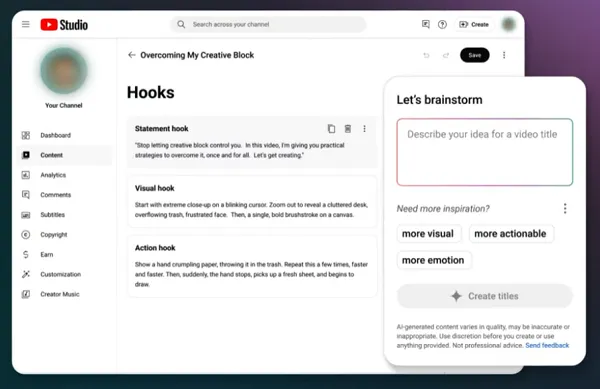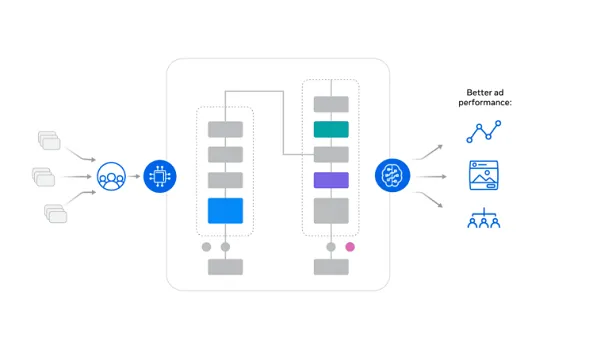Most of us aren’t thinking about what’s happening next week, let alone 10 years down the road in day-to-day business operations. But it’s very important to understand how decisions today could impact the future value of your business. This article will break down everything you need to know about what you should focus on to increase your valuation and why it matters to start thinking about your succession planning strategy right now.
When you’re in the midst of running a business, you’re not thinking about the meeting you have next week or the town hall you have next quarter, let alone the day your helm of the company comes to an end.
It’s common; Most of us aren’t thinking about what’s happening three, five, or even 10 years down the road in day-to-day business operations. But time moves faster than you think. Someday, you’ll be selling your agency, retiring, or experiencing plain-old ownership fatigue. When you do, it is crucial to have a succession planning strategy and understand that even today’s decisions impact the future of your business — and its value.
Succession planning is the strategy businesses use to pass leadership roles and operations down to another employee or group of employees. It involves thinking both long- and short-term, whether it’s when you retire or for an emergency. Successful succession planning strategies include training and upskilling programs over time as well as specific takeover plans.
Part of the succession planning process includes valuations, especially if your agency is looking to get acquired. Agency owners are sometimes a bit surprised and a little disappointed at the valuation numbers they get back. When you are so deep into your work, it can be hard to look from the outside in and realize that you may be so busy doing the work that you forget about preparing your agency for an eventual sale.
Whether you are interested in selling, ready to retire, or simply shutting the business down, succession planning requires discipline and focus — and knowing the day will eventually come. This is your call to be proactive.
How do you add value to your business down the line?
First, you have to be profitable and you have to be able to show that profit over time. Despite how you spend those profits pre- and post-taxes, you must be able to prove your business is a viable one, capable of dropping profit to the bottom line. And, of course, you want to show growth.
Next, build a leadership team that is driving the business forward. It can’t just be you (the owner) making all the decisions and running the whole show alone. In fact, as part of the process, leaders should make themselves more and more irrelevant as the agency grows. This isn’t to say that leaders don’t have a continuous impact on their business, but the company should also know how to operate without that leader. There’s a fine line between dependency and being independent. You want your business to operate independently, without sole reliance on one person or group of specific leaders (even if that’s you). A robust internal leadership team is crucial to long-term success.
You also need a solid client roster. Prioritize finding leads and cultivating lasting relationships with loyal clients. Your business cannot rely on one giant for all of its business. You need a client roster of multiple customers that your team can balance and scale over time.
Further, it is vital to have the definitions and systems in place for your employees to handle that business. Start by defining and following your agency process. Then, document it. From workflow and traffic to how you work with connections, have an agency methodology and a record of it so that people can take over when you go on sick leave or there’s a change in key leadership.
What other considerations do you have to make?
Aside from documentation, you should work to develop clear communication habits and transparency. How are you communicating your progress and shared goals with your agency? Maybe you hold monthly meetings, send a weekly newsletter, or do a yearly strategy retreat. Whatever it may be, you want your company to be informed early and often, long before you’re ready to leave.
Transparency helps to build company culture as well, which is crucial to succession planning. Culture cannot be an afterthought, or it’s too often forgotten; it must be intentional and built over time. A rich, hardy culture will add value to your business through employee engagement and decreased talent turnover.
Longevity matters, too. You want your employees to build tenure. If you are not continually learning and adopting new technologies and methodologies, it will be difficult for your agency and the employees that do stick around to keep growing and adding more value. It’s crucial to ensure you are upskilling your workers, promoting strong company culture, and building promotion systems far before succession. It’s easier to turn to internal employees than outside to take over your company and fill higher-up positions as time goes on.
As you think about succession planning, consider all the pieces: development, mentorship, upskilling, and actually running the business when you are no longer in the picture. Succession planning can often seem far off, but the decisions you make today have an impact on your business’s future and its value. Get the most out of your years (and business) by adding value to your business today.
Written by Drew McLellan.
Have you read?
Meet Dr Kevin Sands: The Cosmetic Dentist to the Stars.
Dr. Alkistis Agio: Do what you love.
THE DANGERS AND OPPORTUNITIES OF ARTIFICIAL UN-INTELLIGENCE by Dr. Joe Zammit-Lucia.
Why Businesses and Leaders Need to Think About Digital Value Chains to Leverage the Power of the Cloud by Arun Melkote.
Uncertainty and risk of failure could cancel the efforts to achieve the goal by Riccardo Pandini.
Add CEOWORLD magazine to your Google News feed.
Follow CEOWORLD magazine headlines on: Google News, LinkedIn, Twitter, and Facebook.
Thank you for supporting our journalism. Subscribe here.
For media queries, please contact: info@ceoworld.biz








































![Spider-Man Is Back in Black With the Green Goblin in New Funko Pop! Figures [Exclusive] Spider-Man Is Back in Black With the Green Goblin in New Funko Pop! Figures [Exclusive]](https://static1.colliderimages.com/wordpress/wp-content/uploads/2025/03/spider-man-the-animated-series-green-goblin.jpg)

































